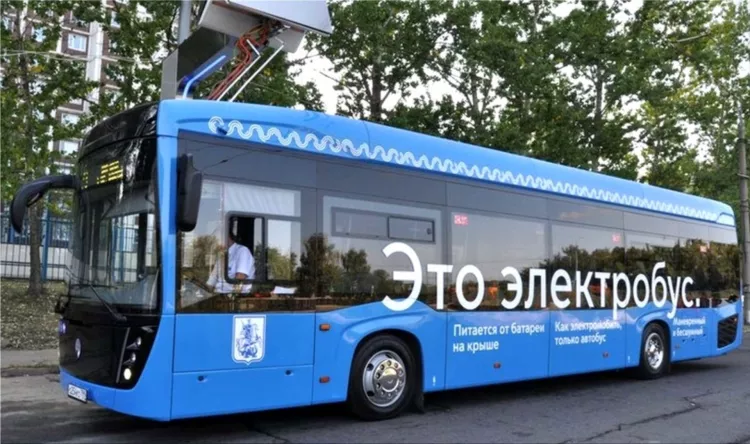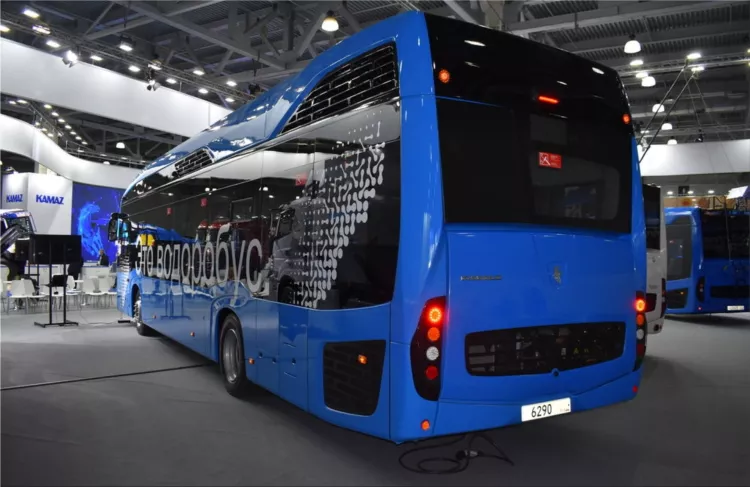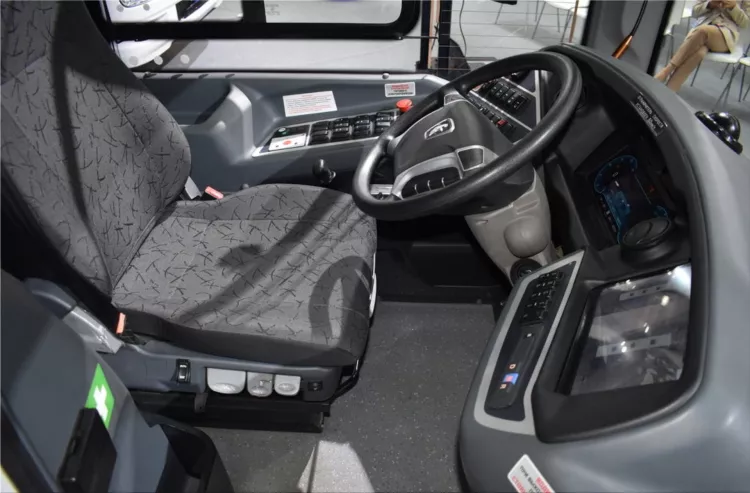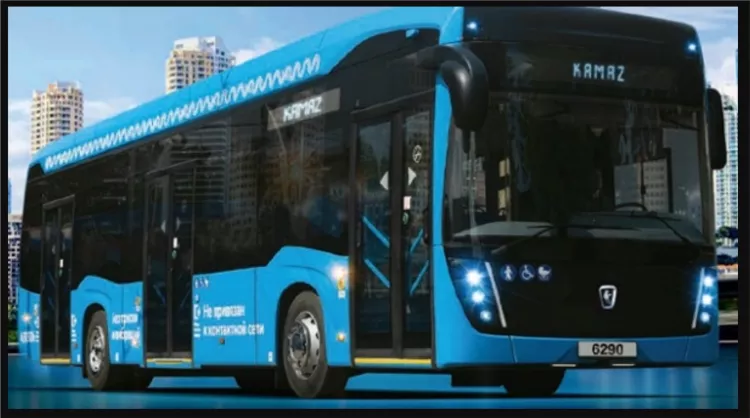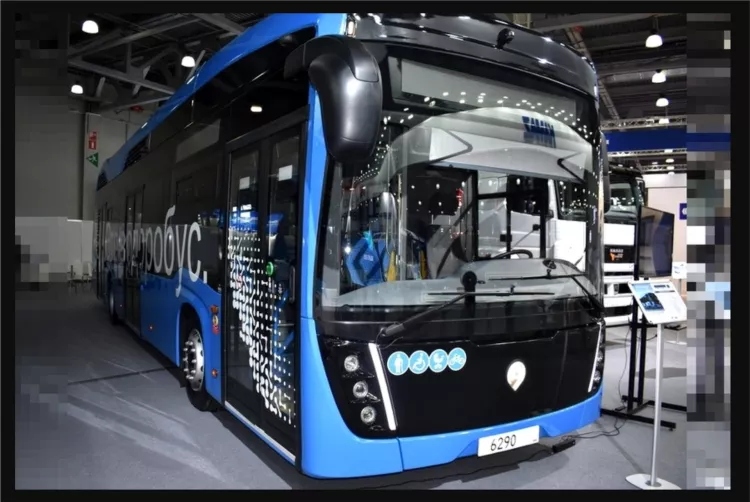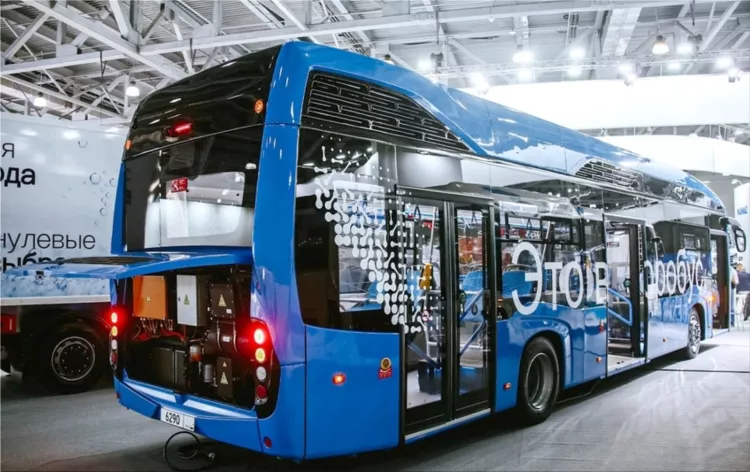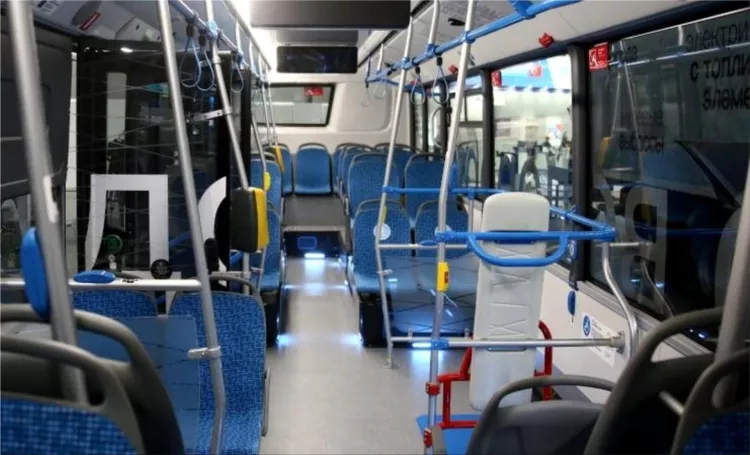The KAMAZ-6290 hydrogen electric bus, a game-changing passenger electric vehicle, will be shown today at Moscow's COMTRANS 2021 - International Commercial Vehicle Show.
KAMAZ continues to develop its portfolio of unique passenger eco-friendly transportation options, which are becoming increasingly popular in megacities. Hydrogen electric vehicles will soon compete with diesel buses; as a result, the company's engineers have created the first hydrogen electric bus to fulfill today's needs, the KAMAZ-6290.
Andrey Savinkov, Chief Vehicle Designer of KAMAZ PTC, stated, "We drew up design documentation for the testbed hydrogen electric bus fulfilling criteria for electric buses, that is, we utilized the KAMAZ-6282 electric bus provided to Moscow as a guide." "The hydrogen electric bus has obvious advantages: it's environmentally friendly, and there's no need for a diesel heater in the passenger cabin. Furthermore, compared to a battery electric bus that can go 70 kilometers on a full charge, a hydrogen electric bus can travel 250 kilometers, making it suitable for intercity transit."
NEFAZ, a KAMAZ subsidiary headquartered in Bashkortostan, built the hydrogen electric bus' chassis and body while the KAMAZ R&D Center installed the roof equipment. As a result, the vehicle's body is composed of high-strength steel and safe plastic, making it solid and crash-resistant on the road. The KAMAZ-6282 hydrogen electric bus has a GVW of 19 tonnes and overall dimensions of 12.4x2.55x3.4 meters. The innovative product runs on hydrogen fuel cells and has six compressed hydrogen cylinders. Because the cylinders are mounted on the roof for safety reasons, hydrogen will rise rather than enter the passenger compartment if there is a leak.
The hydrogen fuel cell is reported to have a 45 kW output, but no additional details are available, nor are there any details on the buffer battery. A robust pneumatic braking system with EBS, ABS, ASR, EPB, a slope hold function, a driving lock if the door is open, and a brake pad wear sensor is included in the hydrogen electric bus. An electric motor with a recovery system allows the vehicle to brake as well. The top speed is 80 kilometers per hour, and the driving range is 250 kilometers. The bus, which has 33 seats, can accommodate up to 80 passengers. The new ecologically-friendly electric bus can operate in temperatures ranging from -40° to +40° C.
The KAMAZ R&D Center's engineers worked hard to make the hydrogen electric bus as pleasant as possible for passengers. The passenger compartment and the driver's cab include dual-zone temperature controls. The hydrogen electric bus has an automatic ramp that allows physically challenged people to enter freely. Passengers can open the doors themselves. An electronic system provides passengers with information and displays it on destination indicators and an information board in the passenger compartment.
"More work has to be done. In 2020, we aimed to test the prototype KAMAZ hydrogen electric bus on Moscow's streets under real-world conditions. Unfortunately, we can't test the hydrogen electric bus anywhere else since the only autonomous hydrogen filling station is in Chernogolovka, near Moscow. "Test drives are expected to be completed in 2023," stated Andrey Savinkov. "If Moscow is willing to build this sort of filling infrastructure and employ the new type of clean buses, we aim to complete the final assembly of hydrogen electric buses at the Sokolniki car repair and production plant in Moscow, where KAMAZ electric buses are currently being built."
It should be noted that Mikhail Mishustin, Russian Prime Minister, adopted the Hydrogen Energy Development Concept in August 2021. The document lays out the objectives, strategic ambitions, and essential steps for launching this sector in Russia. @via Kamaz.ru.
Mercedes-Benz eCitaro proves itself in daily use in Germany. After the first deliveries of the Mercedes-Benz eCitaro to the German cities of Hamburg and Heidelberg, first orders are now also… Continue reading
Solaris has presented its latest electric bus: Urbino 15 LE. The 15-meter-long Urbino 15 LE electric bus is a three-axle vehicle designed primarily for the Scandinavian market. The electric bus is powered by an … Continue reading
These 12 Aptis will be the first electric buses that are incorporated into the vehicle fleet of the Strasbourg urban transport operator. The contract includes the purchase of 12 Aptis vehicles 12 meters long and equipped each with three doors… Continue reading
LION Smart and Vicinity Motor Corp increase their collaboration. The LION Smart battery specialist has received a follow-up order from the Canadian manufacturer Vicinity Motor for the integration of a customer-specific… Continue reading

